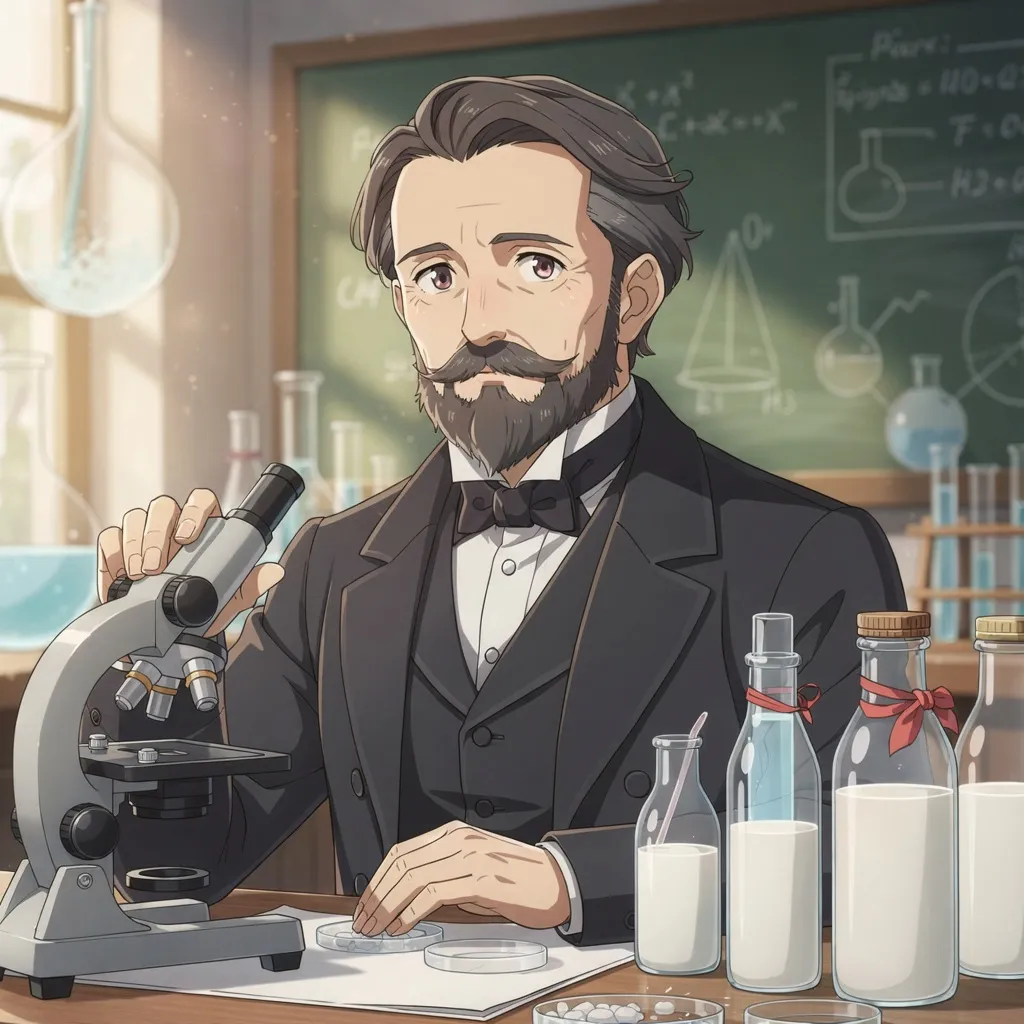
Louis Pasteur
1822-1895
Proving that germs cause disease and creating pasteurization to keep food safe
Early Life
Louis Pasteur was born in 1822 in a small town in France. As a child, he loved drawing and painting more than science. His teachers noticed he was careful, patient, and curious, which later helped him become a great scientist.
Pasteur worked hard in school and went on to study science and chemistry. He enjoyed asking questions and testing ideas to see if they were true. This love of learning guided him through his whole life.
Discovering the World of Germs
In Pasteur’s time, many people believed sickness came from bad air or bad luck. Pasteur did experiments that showed tiny living things, called germs, could cause food to spoil and people to get sick. This idea became known as the **germ theory of disease**.
His work helped people understand why washing hands and cleaning tools are important. These simple habits saved many lives and are still used today.
Pasteurization: A Big Idea for Food Safety
One of Pasteur’s most famous ideas is called **pasteurization**. He discovered that heating liquids like milk and juice for a short time could kill harmful germs.
Thanks to pasteurization, food lasts longer and is safer to drink. Even today, many drinks are pasteurized using Pasteur’s method.
Helping People Stay Healthy
Pasteur also worked on vaccines. He helped create vaccines for diseases like rabies and anthrax. His work protected people and animals from serious illness.
Pasteur cared deeply about helping others. He believed science should make life better for everyone.
Legacy and Inspiration
Louis Pasteur passed away in 1895, but his ideas are still used all over the world. Doctors, scientists, and teachers continue to learn from his discoveries.
Pasteur showed that careful thinking, kindness, and curiosity can change the world. His life reminds kids that asking questions and helping others can lead to amazing discoveries.
🎉 Fun Facts
Louis Pasteur was not a top science student at first, but he never gave up.
Pasteurization is named after Louis Pasteur.
He loved art and was a talented painter when he was young.
The first person to receive Pasteur’s rabies vaccine was a young boy named Joseph Meister.
Many hospitals and schools are named after him around the world.